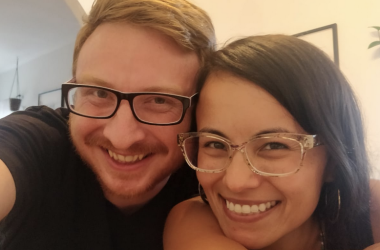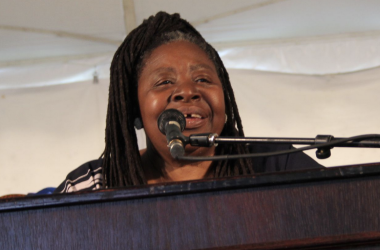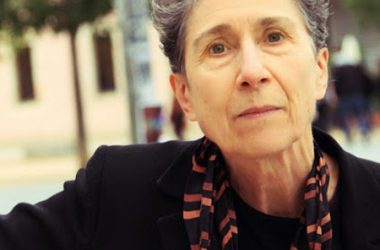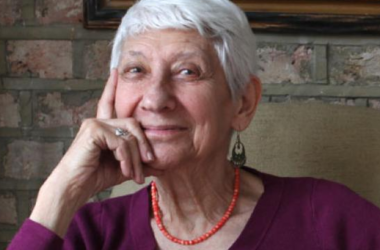by Chris Dodge
By day I change “created the reunion of” to “reunited” and “make their choices about” to “choose.” I change “actually provided succor to” to “aided,” “a considerable length of time” to “a long time,” and “is indicative of” to “indicates.”
I do not cringe or judge. I change or suggest changes.
I replace “on at least one occasion” with “at least once” and “the people who live there” with “residents.” I substitute “within states” for “at the intrastate level.”
I delete or suggest rewording catchphrases that are repeated over and over throughout a book-length manuscript, phrases that nearly put me to sleep.
I work with authors to insure that their intended meanings are conveyed. To distinguish, to clarify, to focus. I ask questions—not always easily answered ones—and incorporate the answers to eventually arrive at a manuscript that has integrity, makes sense, is factual and not needlessly arcane.
I must see the big picture, but, yes, I use a fine-tooth comb. I change “utilized” to “used” and “not unlike” to “like.” I change “and yet” to “yet” and “give guidance to” to “guide.” And so on.
I am not disdainful or contemptuous as I do this. I am patient and diligent. And I’m flexible. I let authors know, “If I’ve used a word or phrase you’d never use, certainly rephrase in your words.” And I let the author have the final say most of the time.
On evenings, as might be guessed, I do not usually wish to read. I go outdoors and examine the long shadows, smell the drying pine, rub the belly of the visiting cat.
When I do read on my own terms, not as a mercenary, I am choosy. I wrote to an editor friend a few years ago, “I’ve just read the first fifty pages of Langston Hughes’s first autobiography—a balm and an antidote . . . with three three-word sentences and a one-word sentence on page one. How is it done? Use all the words that are essential to the story and none that are not.”
I do not solely work with words, and I do not live in an ivory tower. I am a functioning part of communities, including that of my daughter’s school, that of my extended family, that of friends, that of the local public library system, that of the region in which I live, and that of humans worldwide. All humankind, yes, but with special affinity for those who suffer and are abused.
I juggle responsibilities, and not only to myself and clients and aesthetics. But I’m up for it. This is what I do, long haul.
I think of George Orwell since I’m now indexing a new book about him. The wisdom of Orwell’s essay “Politics and the English Language” rooted itself in me long ago. Read it now if you have never. In it are excoriation and despair but also clarity about the problems: the conscious and unconscious use of fuzzy language (Orwell refers to “lack of precision” and “meaningless words”), “ugliness” (clunky phrasing), “staleness of imagery,” “dying metaphors,” “padded sentences,” and “pretentious diction,” among others.
I think about aesthetics and balance and proportion, and I seek multiple points of view. I think about dandelions, nuthatches, and salsify seeds—and watch them grow, fly, tumble, float, and land.
Kristian Williams, author of the book I’m indexing, quotes an Orwell that perhaps not many know, excerpts from an essay on toads, for example, and the likes of this:
Spring is here, even in London N.1, and they can’t stop you enjoying it. . . . The atom bombs are piling up in the factories, the police are prowling through the cities, the lies are streaming from the loud-speakers, but the earth is still going round the sun, and neither the dictators nor the bureaucrats, deeply as they disapprove of the process, are able to prevent it.
Yes, besides editing books, I am an indexer of them. In a chapbook I published last year, Mister Reader, I wrote: I am vertiginous with books.
For a variety of publisher clients I have indexed A Young People’s History of the United States, A People’s Art History of the United States, and Part of Our Lives: A People’s History of the American Public Library, edited An Indigenous Peoples’ History of the United States, and proofread A People’s History of the U.S. Military.
I’ve indexed books by Howard Zinn, Alexander Cockburn, Amy Goodman, Angela Davis, Ed Abbey, Noam Chomsky, Michael Parenti, Mumia Abu-Jamal, Arundhati Roy, Dave Roediger, and volumes of writings by Trotsky, Luxemburg, Malatesta, and Kropotkin. . . .
On and on. Yet, dizzied and nearly satiated, in my spare time, so-called, I continue to read for all the reasons I have long done so: to find the right words, the words for what I have previously only found ineffable and perhaps not sensed at all. Words that startle me awake and have me rereading them, perhaps a single long sentence over and over. Words that illumine something I’ve never seen, never dreamed of, something important, even crucial, that makes me put all else aside and causes time to vanish.
Words such as those of Jane Kenyon from “Trouble with Math in a One-Room Country School”:
The warmth, the gloom, the smell
of sweeping compound clinging to the broom
soothed me. I found a bucket, turned it
upside down, and sat, hugging my knees.
. . . and hardened my heart against authority.
Such as those of Fernando Pessoa (Book of Disquiet) in translation by Richard Zenith: “I see life as a roadside inn where I have to stay until the coach from the abyss pulls up.”
Such as those of Rivka Galchen (Little Labors): “Firsthand knowledge is an obstacle to insight.”
Such as those of Arundhati Roy (“The End of Imagination”): “If we do not acknowledge injustice when it is looking us straight in the eye, we will all go down together in the quicksand of moral turpitude.”
Such as those of Helen Keller (Out of the Dark): “Ignorance gives her confidence, and she is fearless from want of understanding.”
Reading for consolation? Sometimes. Reading for insight, indeed.
Mister Reader again: “At a base, unenlightening level, reading, like travel, can be little more than voyeurism. But at another level it can entail dialogue, real learning, encouragement, and inspiration.”
And books can represent community. (Hello, friend.) As I wrote:
I am not a book club member, however, and reading is not chiefly joyful. I am afflicted by books and at times feel positive revulsion. As [Paul] Theroux puts it in The Last Train to Zona Verde: “I argued myself into thinking that physical experience is the only true reality. I didn’t want to be told about this, nor did I wish to read about this at second hand, I didn’t want to look at pictures or study it on a small computer screen. I didn’t want to be lectured about it. I wanted to be traveling the middle of it, and for it to be washing over me.”
Yes and yes, I think: Wash over me, life. Rain hard upon me, hours, old news, sleet, hail, bug bites, broken bones, dog tails, music (divine), music (banal), owl chorales, memories, moon shadows, innocence, sleep.
Wash over me too, books.
I concluded with a conceit: that “all my reading, all my life, has searched for and continues to seeka single book, the one that closes the circle.” Some have found this in the Bible. Others in Ayn Rand or Walden. But “my grail, probably a slender, tattered volume, is waiting patiently for me, nearly invisible on a shelf, in a used bookstore in Thunder Bay, Ontario, a shop that doesn’t even have a sign in front.”
No, I corrected myself: “I’m wrong. The last copy of that book is moldering in a landfill now—if ever it was written. But it probably hasn’t been. In fact, I’m sure it hasn’t been written, damn it. Which means one thing: laborious labor, untold travail—I will need to write it myself.”
As if.
At the moment I have a single need
that trumps all: to go out and inspect the sky. Autumn is coming,
Cassiopeia is back in sight, and good for that.______
Chris Dodge is a freelance editor, indexer, and proofreader.
Original posted on Linkedin on August 18, 2017






